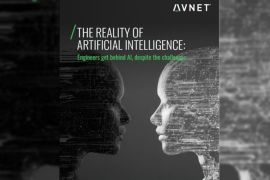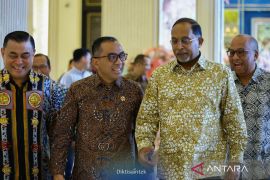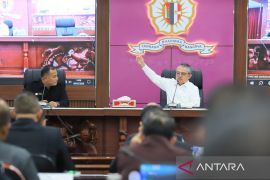"The AI roadmap's vision and mission are designed to create a research and artificial intelligence innovation collaboration ecosystem. It is also expected to drive the growth of the investment climate and prepare use cases for national priority programs," he said here on Wednesday.
According to him, the use of AI technology can address challenges in various strategic sectors, such as food security, education, health, and the creative economy.
Patria emphasized that in order to ensure inclusive, adaptive, and sustainable AI development, the national AI roadmap focuses on four things, namely, first, strengthening the participation of all stakeholders in creating an inclusive AI ecosystem.
The second focus is on mitigating risks from the use of AI, such as misinformation and other negative consequences.
"We should think about risk mitigation against misinformation and others to realize ethical and responsible artificial intelligence governance," the deputy minister remarked.
Furthermore, the third focus is on developing innovation to strengthen all business processes in the development and adoption of AI technology, while the fourth is on enhancing AI development innovation and research capacity.
"The vision and strategies are directed towards AI Independent Indonesia, and it is not only the task of the government; we must collaborate," he emphasized.
The Indonesian government is currently preparing the AI roadmap, which will serve as a guideline for developing an inclusive and responsible AI ecosystem.
The government has determined five priority sectors for AI development, which are health, digital talent education, bureaucratic reform, smart city development, and food security, to ensure that digital transformation promotes fairness and people’s welfare.
Related news: Roadmap to guide ethical, inclusive AI use: Government
Related news: Need talent ecosystem to counter digital disruptions: govt
Translator: Farhan Arda, Raka Adji
Editor: Primayanti
Copyright © ANTARA 2025











